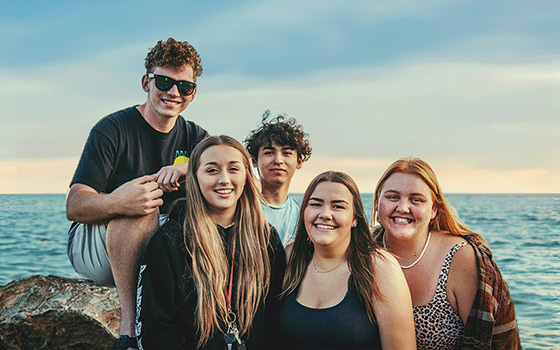Search
Showing results for "8"
For millennia, Aboriginal people's ways of knowing, doing and being were shared through art, song, and dance. Colonisation silenced these ways, affecting loss of self-determination for Aboriginal people. Over the past decade in Australia, hip-hop projects have become culturally appropriate approaches for health promotion.
The social media application TikTok allows users to view and upload short-form videos. Recent evidence suggests it has significant potential for both industry and health promoters to influence public health behaviours. This protocol describes a standardised, replicable process for investigations that can be tailored to various areas of research interest, allowing comparison of content and features across public health topics.
The aim of this review was to map the literature assessing associations between maternal or infant immune or gut microbiome biomarkers and child neurodevelopmental outcomes within the first 5 years of life. We conducted a PRISMA-ScR compliant review of peer-reviewed, English-language journal articles.
While early exposure to alcohol may influence the development of facial structures, it does not appear to be associated with ASD phenotypic variability

The Adolescent Health and Wellbeing team works in partnership with young people to understand their priority needs and the best ways to address these. This includes informing evidence-based policies and co-designing accessible and responsive health services.
Every year, over 80,000 Western Australian children will have a diagnosed mental health disorder.
As both bronchiolitis and bronchiectasis are diseases of the airway surface, we will comprehensively study the airway surface and factors affecting the airway surface in infants hospitalised with bronchiolitis.

Some of the more common questions about the LiLO study
Co-designed and in collaboration with community members, the impacts of this project will directly benefit families by building awareness, empowering decision-making, and improving confidence around the recognition and management of skin conditions for Aboriginal children.
Co-design of a program supporting paternal involvement in preterm care.
